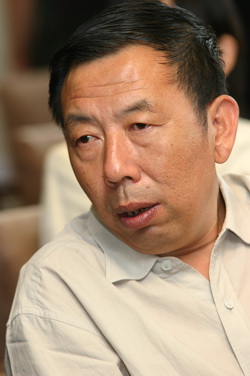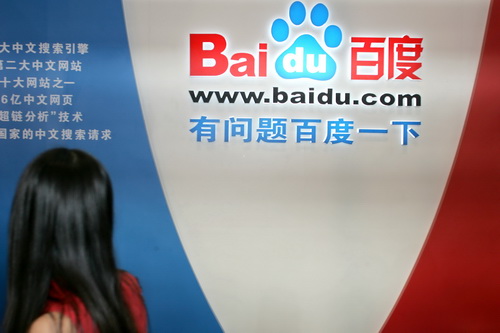Issue Wrap No. 508, Feb 28, 2011
Highlights from the EO print edition, Issue Wrap No. 508, Feb 28, 2011
The Passing of the Vehicle and Vessel Tax
News, cover
~ On February 25, amendments to China's Vehicle and Vessel Tax were passed by the NPC standing committee after several earlier attempts to modify the details of the tax had been bogged down in China's congress.
~ The amended law provides a good example of how an appeal for public feedback on proposed changes to legislation can help to improve laws and offers a model for future interaction between the government and people.
~ The Vehicle and Vessel Tax is both a local and central tax - with the central government setting broad parameters and provincial governments applying their own version of the tax in keeping with local conditions.
~ After seeking public feedback across the country, many local legislators decided that given the pace at which China's CPI is increasing, it's not the most appropriate time to increase the tax burden on car owners and pushed for changes to the original draft amendments.
~ The tax burden of the Vehicle and Vessel Tax amendments that were finally passed were much lower than that included in the original draft.
Original article: [Chinese]
What's Up with BYD?
News, cover
~ BYD Co Ltd, a Shenzhen-based manufacturer of automobiles and rechargeable batteries, recently layed-off staff and reduced the price of some of their cars.
~ These recent moves have once again led many to question whether influential American investor Warren Buffet will continue to retain his 10% stake in the company that he bought via Berkshire Hathaway Inc. for 230 million US dollars in 2008,
~ A sales manager at BYD explained that the staff cut was due to the company having a short-term excess in the number of sales staff. In regards to the price cuts, the manager said that the company hoped to increase cash flow by relying on reduced prices to drive up sales.
~ BYD continues to have an ambitious investment plan and is investing in various new energy technology.
~ According to one BYD employee that the EO spoke to, the company's finances were very healthy.
Original article: [Chinese]

All-China Federation of Trade Unions Pushes for Revisions to Labor Contract Law
News, page 3
~ Revisions to China's Labor Contract Law are on the cards only three years after the law came into effect on Jan 1, 2008.
~ According to a report produced by the All-China Federation of Trade Unions and submitted to the Law Committee of the National People's Congress, over 60 million workers have signed labor contracts with intermediary employment agencies instead of directly with the enterprises for whom they actually work, which in many cases are state-owned enterprises.
~ This figure exceeds similar estimates made by the Ministry of Human Resources and Social Security by 30 million.
~ According to the current Labor Contract Law, employment companies can only sign contracts for workers engaged in temporary work. That
means employers can avoid contributing to social security plans and can pay them less than workers who have signed contracts directly with their employers.
~ The EO has learned that the All-China Federation of Trade Unions has suggested that the National People's Congress amend the existing Labor Contract Law in order to deal with the situation.
Original article: [Chinese]
 What's to be Discussed at this Year's "Two Sessions?"
What's to be Discussed at this Year's "Two Sessions?"
Nation, page 9-15
~ This week's paper includes a special feature that outlines the variety of issues that are likely to be discussed at this year's plenary meetings of China's People's Congress (NPC )and the Chinese People's Political Consultant Conference (CPPCC).
~ Sun Liping, a professor with Qinghua University, points out that social unrest has increased and that more social progress is needed.
~ Wang Shengxue, director of China City Economics Association, has suggested China should pay more attention to protecting historical legacies.
~ Other issues that are likely to be addressed include policy-based housing and reform of how China's budget is designed.
Original article: [Chinese]
Could Insurance Companies Finance the 500 Billion Yuan Local Governments Need to Push Ahead with Government Housing Projects?
Market, page 20
~ The Chinese government has pledged to construct 10 million units of government-subsidized housing this year, an investment of over 1.3 trillion yuan.
~ According to a report released by the World Union Properties, a property consultant company located in Shenzhen, local governments need to put up at least 500 billion yuan of the capital needed to meet the central government's target.
~ Meanwhile, by the end of 2010, with 5.04 trillion yuan at hand, Chinese insurance companies are looking for projects to invest in.
~ Though these two figures might suggest that the insurance industry might be interested in investing in policy-based housing, experts warn that many policy-based housing projects can not be relied on to be profitable and also don't have any easy-exit channels and thus urge insurance companies to exercise be restraint when investing in such projects.
Original article: [Chinese]
New Third Market to Begin Trading in July
Market, page 22
~ The EO has learned from a reliable source close to the China Securities Journal Commission that the pilot area of China's New Third Market (also previously referred to as the Agency Share Transfer System) will be expanded. The government will seek public feedback on the draft plan after this year's "two sessions" and it's predicted the first batch of companies listed on the New Third Market will begin trading in July.
~ The New Third Market, also sometimes referred to as the "Innovation Board," which provide funding to high-tech companies.
~ Aside from institutional investors, individual investors who have met certain requirements, will also be allowed to invest in the new market.
Original article: [Chinese]

The Story of Alibaba
Corporation, page 25
~ The chief executive officer David Wei and chief operating officer Elvis Lee of Chinese e-commerce giant Alibaba resigned on Feb 21 after a probe found many suppliers had defrauded online customers.
~ There are three main factors that led to David Wei's resignation. The scandal was simply the fuse - the other two reasons are a slow-down in earnings growth fatigue and pressure from Yahoo!, a major shareholder in the company.
~ Alibaba faces an uncertain future with much debate about what business staregy the company should pursue. Although Alibaba can earn more than 2 billion yuan off membership fees every year, more than half of the companies that are using the service aren't able to make profits from the site.
Original article: [Chinese]

China's "Wikipedia" Submits Complaint about Baidu to Central Government Ministry
Corporation, page 28
~ Hudong.com, the largest Chinese-language "wikipedia-style" user-generated encyclopedia website, submitted an application for an investigation into the anti-monoploy behaviour of Baidu Inc. to the State Administration for Industry and Commerce on Feb. 22.
~ Hudong.com says that Baidu makes use of its dominant market position to alter search results so that users are not directed to the websites of Baidu's competitors.
~ Hudong.com is asking that the ministry impose a fine of 790 million yuan on Baidu.
~ Pan Haidong, chairman and chief executive officer of Hudong.com, claims that "Baidu has used its dominant position to bully and block competitors."
~ Only 10 percent of Hudong.com visitors are directed to the site via Baidu.
Original article: [Chinese]
The views posted here belong to the commentor, and are not representative of the Economic Observer |
Related Stories
Popular

- BOOK REVIEW
- February 2011 Issue of EO's Book Review
- Interviews with historian Gao Hua (高华), academic Du Junfei (杜骏飞) and well-known author Yue...
Interactive
Multimedia

- EEO.COM.CN The Economic Observer Online
- Bldg 7A, Xinghua Dongli, Dongcheng District
- Beijing 100013
- Phone: +86 (10) 6420 9024
- Copyright The Economic Observer Online 2001-2011
















